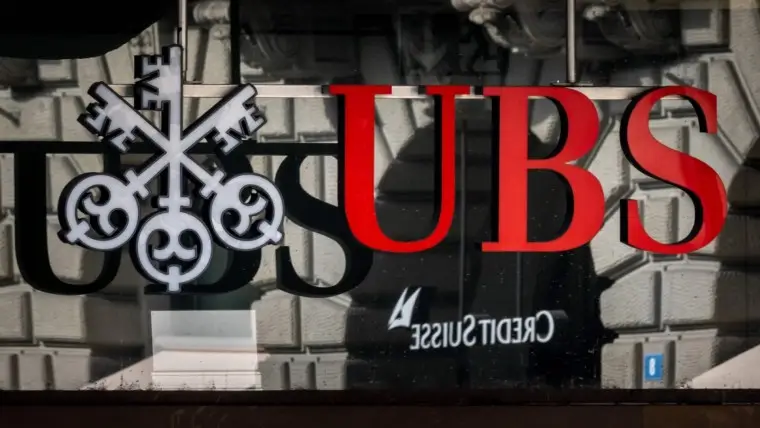
Bank failures deepen debt ceiling stalemate on Capitol Hill as the clock ticks
WASHINGTON — Congress is making no progress on how to avert a debt ceiling crisis, and the recent collapses of some banks are deepening the stalemate.
President Joe Biden and House Speaker Kevin McCarthy, R-Calif., met Feb. 1 to discuss the debt limit, but they haven’t met since then. McCarthy wants Biden to accede to spending cuts as a condition for raising the debt ceiling. Biden maintains that paying the country’s bills is nonnegotiable and is demanding that McCarthy first specify what spending he wants to cut, which he hasn’t done.
And the recent failures of Silicon Valley Bank and Signature Bank, which have created jitters in the financial sector, have only entrenched the conflicting views between the parties.
Republicans say the bank failures were caused by high inflation and rising interest rates, describing the economic landscape as a validation of their demands for spending cuts in the debt ceiling debate.
How UBS’s acquisition of Credit Suisse is affecting bank shares
March 20, 202303:37“Why are we having a banking crisis? Because government spent too much and created inflation,” McCarthy told reporters Tuesday at the House Republican retreat in Orlando, Florida. “Should we do exactly what the president is saying, just lift the debt ceiling and create more inflation and more banking problems? I mean, this should be a wake-up call to everybody and say, ‘Oh, my God, we better do something about this debt ceiling.’”
Democrats say the bank failures emphasize the need for stability and serve as a warning against triggering a self-inflicted crisis.
“What we do not need is our House Republicans threatening chaos and absurdly linking the banking crisis to default — dangerously linking the banking crisis to default. What we need instead is calmness, stability, careful consideration of the facts,” Senate Majority Leader Chuck Schumer, D-N.Y., said Wednesday. “Undermining the full faith and credit of the U.S. is never a good idea, but in the aftermath of a major bank collapse, it’s supremely reckless.”
House Republicans, he said, are “threatening a global economic crisis over the debt limit at the same time we have this problem in the banking industry.”
“It’s ridiculous. It’s reckless,” Schumer said.
Republicans dial up the attacks
A group of conservative Republicans, including Sens. Rick Scott of Florida and Mike Lee of Utah and members of the ultraconservative House Freedom Caucus, insisted at a news conference Wednesday that Biden would be to blame if the country defaults on its debt and triggers a global economic meltdown.
“When moms and dads get laid off and when unemployment doubles and the stock market collapses, remember, Joe Biden sat on his hands while we urged and demanded action,” said Rep. Lauren Boebert, R-Colo.
Raising the debt ceiling doesn’t authorize new spending; it enables the government to pay bills Congress has legally imposed. Both parties have contributed to rising debt over the years.
“We’re not going to be sending money to pro-prostitution, LGBTQ groups in Colombia — because that’s what you’re doing with your tax dollars right now,” said Rep. Chip Roy, R-Texas.
Asked what Roy was referring to, his office cited a Washington Examiner report about a $16,000 State Department grant.
Senate Minority Whip John Thune, R-S.C., said Wednesday that GOP senators still back McCarthy to figure out a debt limit solution with Biden but added: “I can’t speak to the current progress of that.”
“It hasn’t happened just yet,” Thune said. “But I’m hopeful that it will. As is typically the case around here, sometimes it takes a little bit of pressure to get people to the table.”
Treasury Secretary Yellen's warning
The Treasury Department has set a June 5 date for Congress to act or risk default, although the Congressional Budget Office estimates it’ll be between July and September.
In the meantime, the Republican-led House is moving forward with a plan to “prioritize” payments in the event of a debt limit breach — meaning pay some bills and not others. But it's unclear whether McCarthy will bring that to a vote in the full House.
Treasury Secretary Janet Yellen blasted the idea at a Senate hearing last week, calling it “effectively a default by just another name.”
“I cannot give any assurances about the technical feasibility of such a plan,” she said. “It would be an exceptionally risky, untested and radical departure from normal practices of agencies across the federal government. And I consider it essential to Congress to come together to recognize that raising the debt ceiling is their responsibility to protect the full faith and credit of the United States.”
Senate Banking Committee Chair Sherrod Brown, D-Ohio, said he believes Rep. Patrick McHenry, R-N.C., the House Financial Services Committee chair who has warned Republicans to be realistic about the debt limit, can help.
“I have confidence in Patrick McHenry — that he’s going to step up and bring McCarthy along and solve this debt crisis,” Brown said.
He said the idea of failing to raise the debt limit and prioritizing payments to creditors “essentially chooses rich people over Social Security and ... the Chinese Communist Party over Medicare.”







